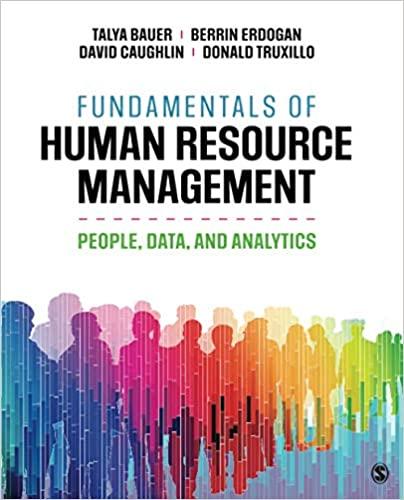Consider the following job attributes: good pay and benefits and meaningful work where you are able to
Question:
Consider the following job attributes: good pay and benefits and meaningful work where you are able to make a difference in people’s lives, save them from danger, help them get jobs, and bring aid to places where it is needed most. You have opportunities to learn something new every day, and a lot of travel is involved. If this sounds like your dream job, note that the job is actually in a war or disaster zone with poor living conditions, scarce medical support, and physical danger. Many organizations encounter risks as they do business, but for an international nongovernmental organization (INGO) such as Mercy Corps, danger is the business.
Nongovernmental organizations (NGOs) are humanitarian nonprofit organizations that aim to effect change in environmental, social, human rights, or other issues, and as an INGO, Mercy Corps performs this mission on a global scale. Whether it is bringing relief to refugees in Syria, helping farmers in Ethiopia prepare for drought conditions, or providing educational and employment opportunities to marginalized populations in Nigeria, working in international tough spots is everyday work for Mercy Corps employees. The Portland, Oregon–based organization operates in 40 countries and employs around 4,000 employees, fewer than 200 of whom are based in the United States. The agency deploys talent to where it is needed, which may mean sending African employees to work in the Middle East or Indonesian employees to South Sudan.
Given how critical employees are to Mercy Corps’ mission, it is no surprise that HR is a strategic partner within the company. To be effective, HR leaders of Mercy Corps need a deep understanding of the company’s operations, which may explain the appointment of Nigel Pont, a former regional director for Middle Eastern Operations, to the role of chief people and strategy officer. Part of how Mercy Corps enables business success is to ensure that the local teams are supported by local HR teams and that local HR teams have a voice within the country-level operations.
Case Discussion Questions
1. What do you think the unique and similar challenges are for NGOs versus for-profit companies in terms of HR and HR strategy?
2. What advantages do you think Mercy Corps has in recruiting, hiring, training, and managing employees relative to a domestic business?
What are the challenges?
3. Cultural intelligence is the ability to work effectively across cultures.
How do you think Mercy Corps can hire based on this skill? How can this skill be developed?
4. How do you think improved expertise in data analytics would affect the HR functions of Mercy Corps?
5. Organizations have a choice in centralizing or decentralizing their operations, including those of HR. To what degree do you think that centralized HR operations would be beneficial for Mercy Corps?
Which operations would benefit from centralization? Which ones are better left to the discretion of local teams?
Step by Step Answer:

Fundamentals Of Human Resource Management People Data And Analytics
ISBN: 9781544377728
1st Edition
Authors: Talya Bauer, Berrin Erdogan, David E. Caughlin, Donald M. Truxillo





